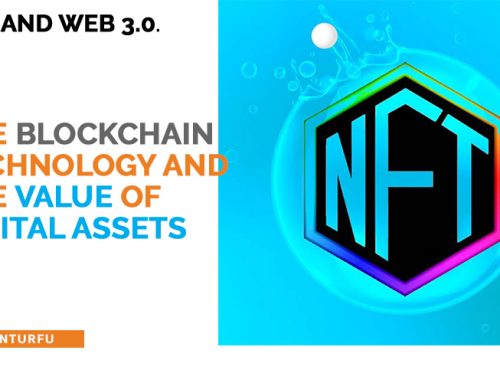THE EXECUTIVE EMPLOYEE IN A COMPANY.
EXECUTIVE JOB
OFFERS ARE
EXPLODING.
In the third quarter of 2021, executive job offers exceeded their pre-crisis level. In Q3 2021, they are +8% compared to Q3 2019. The number of jobs in the industrial sector has risen by +17 points, while construction has risen by +16 points, high value-added services by +9 points and trade by +3 points.
As a result, 11% of companies say they intend to hire an executive in Q4 2021.
The executive employee in a company: the surge in job offers.
For the first time since the beginning of the health crisis, the volume of executive job offers exceeds by 8% that of 2019, although it was a record year for recruitments. APEC, the French Association for Executive Employment, has recorded 127,660 executive job offers, or 18% more than at the same time in 2020. This is how executive job offers are soaring, happily exceeding pre-crisis levels.
The executive employee : a snapshot.
There are more than 5 million executive jobs in France, which is about 19% of the active population. We have a majority of men, 58%. Nevertheless, women are six times more represented than forty years ago.
Sectors impacted by this upturn.
The most sought-after jobs are those of engineers in the building industry, construction managers, telecommunications, IT, maintenance, technical sales, lawyers, etc. In fact, the sectors of economic activity that receive the most offers are health +45%, the pharmaceutical industry +39%, distribution +30% or real estate +27% etc.
The role of an executive in a company.
The roles of an executive differ from company to company. However, all of these roles combine and complement each other from company to company. The employer therefore expects an executive to perform a few well-defined roles. For example, an executive who manages a team must :
- Organize and structure the team.
- Make decisions.
- Be an expert in his or her field of activity.
- Manage the budget.
- Lead the employees.
- Be a leader.
An executive’s wage.
In 2018, according to APEC, an executive earns between €49,000 and €56,000 gross annually. Salary expectations depend on the job description as well as the size of the company or structure, whether it is an SME, a small or medium-sized company, a start-up or a multinational.
All sectors taken together, in 2020, the average gross annual salary of a junior executive is 35,714 euros excluding bonuses. And when bonuses are included, it will be €38,833 gross. At the same time, the monthly salary of a private sector executive is about € 5,633 gross. Thus, the salary of 80% of the general manager positions oscillates between 97.860 and 238.010 € gross/year.
In 2020, 52% of executives receive a bonus, with a median amount of € 5,000.
The disparity between men and women.
The difference in remuneration between men and women has increased from 14 to 15%, i.e. an average of €56,000 compared to €43,000. This gap is 8% for an equal profile as 10 years ago. Nothing changes at all.
The executive employee in a company: academic path.
Generally, a BAC+5, a university master’s degree or its professional equivalent gives access to executive status. We are in the presence of a knowledgeable person who masters his field of intervention. Moreover, he or she is an expert and very often a manager.
Technical and engineering management jobs represent about 29% of this socio-professional sub-category. They include IT and logistics jobs, project managers, administrative managers, sales and marketing managers, HR consultants, lawyers, etc.
Finally, the socio-professional categories of executive and higher intellectual profession includes any type of job requiring in-depth knowledge in a field.
How else does one become an executive ?
One can also reach the executive status, because one has a certain professional experience. On the other hand, training courses such as BTS/ DUT (BAC+2) or professional license (BAC+3) with serious professional and managerial experience also allow access to these executive jobs. In fact, this status is synonymous with greater responsibilities and the ability to take up challenges.
The framework contract is subject to a few mandatory points including :
- A fixed day rate of pay;
- an advantageous pension plan ;
- higher unemployment contributions;
- a longer trial period and notice period 3of months.
Of course, other specificities can be added to this list depending on the collective agreement of the executive job in question and the goodwill of the employer, In 2020, 52% of executives receive a bonus, with a median amount of € 5,000.
How else does one become an executive ?
One can also reach the executive status, because one has a certain professional experience. On the other hand, training courses such as BTS/ DUT (BAC+2) or professional license (BAC+3) with serious professional and managerial experience also allow access to these executive jobs. In fact, this status is synonymous with greater responsibilities and the ability to take up challenges.
The framework contract is subject to a few mandatory points including :
- A fixed day rate of pay;
- an advantageous pension plan ;
- higher unemployment contributions;
- a longer trial period and notice period 3of months.
Of course, other specificities can be added to this list depending on the collective agreement of the executive job in question and the goodwill of the employer, benefits in kind, non-competition clause, pension plan…
The executive employee in a company: what about the labor code ?
The Labor Code does not define what the status of a manager is. Thus, after 36 months of negotiations, the National Interprofessional Agreement, ANI on the framework was born on June 18, 2020. Indeed, 5 trade unions representing employees and 3 for the employer have agreed on the status of executives in companies.
However, apart from the definition of some characteristics of the function, the ANI leaves each branch to define, if necessary, its own criteria in its own sectoral context.
Management status according to the National International Agreement.
An executive possesses :
- an aptitude for functions of a predominantly intellectual nature
- functions that condition or induce the thinking and/or action of other employees
- a sufficient margin of initiative and/or autonomy, the extent of which depends on the responsibilities and/or the delegation of powers
- entrusted to him/her
- an effective responsibility contributing to the running and development of the company.
The executive employee in a company in brief.
An executive is an employee and expert in a specific field. Responsible, versatile and autonomous, he/she must achieve the company’s objectives. They can also manage a team in the accomplishment of their missions. However, many executives do not manage and not all managers are executives.
The idea of the executive in the workforce.
Executive status is always a dream. Many employees seek this status during their career. Because obviously in the collective unconscious it is a function synonymous with autonomy, a better place in the company’s hierarchy and a higher salary. In other words, it is an opportunity to rise culturally, to adopt new consumption practices and to have access to a certain lifestyle. In short, being an executive beyond the professional sphere is synonymous with social success.
What is an assimilated executive ?
This status is only possible if the employee’s collective agreement offers the possibility. The latter must then list the criteria for granting it, i.e. seniority, grade, etc. Moreover, the Court of Cassation in its decision, Cass. soc., May 19, 2010, n° 08-45469 specifies in this hypothesis that the employer had expressed the will to recognize the employee’s rights attached to the quality of executive. Thus, the employee assimilated to a manager can benefit from responsibilities similar to those of a manager, and from a greater autonomy in his work. Nevertheless, some differences remain.
In particular, the allocation of managerial tasks, salary, vacations and bonuses.
The silent revolution of typology in the company in France.
This is a small revolution in the history of work in France, but it goes unnoticed. For the first time, in 2020, the share of managers will exceed that of workers. They represent 20% of the working population, a proportion that has doubled in 20 years,” says Gilles Gateau, the director general of Apec, the French association for executive employment.
Based on INSEE figures, Gilles Gateau notes a clear improvement in executive job offers. Thus at + 2% of offers in June 2021 compared to June 2019, we move to + 8% in July, + 10% thereafter and the curve remains upward including on offers for young graduates.
The executive employee in the company: the shortage.
De-industrialization and job automation have contributed to redrawing the sociology of companies to the benefit of a heterogeneous category of employees : experts, managers, project leaders, technical or functional executives…
In the first half of 2021, two out of three companies told us that they were having difficulty filling their needs.
Today, it is three companies out of four. There is a shortage of IT specialists, engineers, sales people or technical sales people, and also of foremen or site managers in the construction industry. Gilles Gateau
The vital benefits of executive life.
Male executives live on average 6 years longer than blue collar workers. And women executives live 3 years longer than workers, according to INSEE.
Similarly, the difference in life expectancy at age 35 between university graduates and non-graduates is 7.5 years for men and 4 years for women. And in all cases, regardless of their social category, women live longer than men. For example, the life expectancy of female workers is one year higher than that of male managers.
The lexical field of Professions and Socio-professional Categories.
The PSC, professions and socio-professional categories, are the distribution of French workers in categories. These working people have a certain social homogeneity. That is to say that they have the same kind of behavior with regard to fertility, political opinions, leisure activities, etc…
The executive employee in a company : the classification of assets.
To make the groups, I.N.S.E.E., the National Institute of Statistics and Economic Studies, takes into account a certain number of socio-professional criteria:
-
the status of the workers, employee, self-employed, employer
-
their occupation, their qualifications
-
their place in the professional hierarchy.
-
whether or not they have people under them,
-
the activity of the company where the person works.
There are 6 Professions and Socio-professional Categories :
-
farmers,
-
craftsmen,
-
shopkeepers and company managers,
-
executives and higher intellectual professions,
-
intermediate professions,
-
employees
-
workers.
Income as a categorization criterion.
Income is not one of the criteria used by the I.N.S.E.E. to constitute the PSC, even if, indirectly, individuals with comparable incomes will undoubtedly be found in the same PSC.
However, the I.N.S.E.E. does not use income as a criterion to constitute the PSC.
The nomenclature of socio-professional categories.
The PSC groups 42 socio-professional categories that are a breakdown of the active population. More precisely, these 42 categories include the 455 occupations that the I.N.S.E.E. counts.
Sometimes there are 8 PSC when the I.N.S.E.E. wishes to distribute the entire French population. Then it adds 2 PSC :
- the retired, and the others without professional activity.
Just to conclude, we remind you that the nomenclature of professions and socio-professional categories, known as PSC, has replaced the SPC, Socio-professional Category, since 1982.
Ok de-MEDEIROS
SOURCES : https://www.cadremploi.fr/editorial/conseils/droit-du-travail/quest-ce-quun-cadre, https://www.leparisien.fr/economie/business/il-y-a-une-dynamique-tres-forte-sur-lemploi-des-cadres-se-felicite-le-directeur-general-de-lapec-27-09-2021-MDAARPTXY5AEJJGHCZNZIXTHNQ.php, https://www.latribune.fr/economie/l-emploi-des-cadres-s-envole-et-depasse-les-niveaux-d-avant-crise-895261.html, https://www.monster.fr/emploi/q-emploi-cadres-et-direction; https://www.lesechos.fr/economie-france/social/emploi-des-cadres-lembellie-se-confirme-1333248, https://www.insee.fr/fr/statistiques/1908110, https://ses.webclass.fr/notions/categories-socioprofessionnelles-pcs/






Laisser un commentaire